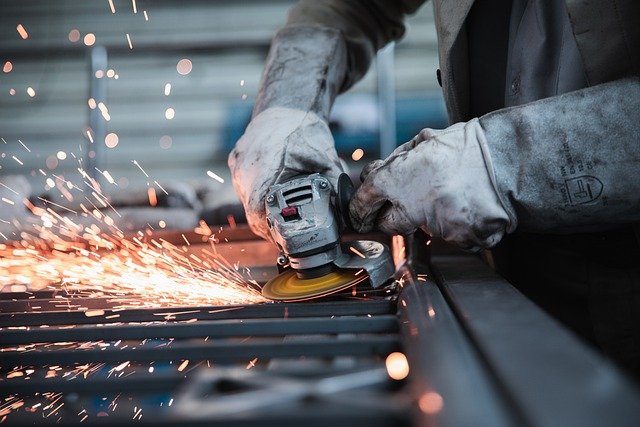Begin Your Welding Training Journey in Spain as an English Speaker
Individuals residing in Spain and proficient in English may consider beginning their journey in welding through various training options. These training programs cater to beginners, offering foundational skills and techniques essential for welding. The importance of acquiring proper training in welding cannot be overstated, as it equips participants with the knowledge needed to succeed in the field.

Beginning welding as an English speaker in Spain can feel complex, but a clear plan makes it manageable. You will balance language considerations with hands on practice, while aligning your learning to European standards that many Spanish centers follow. This overview explains your training options, the core skills to master first, why formal instruction matters, how to identify credible providers, and what the employment landscape generally looks like for trained welders.
Welding Training Options for English Speakers in Spain
If you prefer to study in English, you have several routes. Some Spanish providers offer bilingual delivery or English friendly support materials, especially in programs tied to European and international welding qualifications. You can also combine a local practical course taught in Spanish with English language theory resources to reinforce learning. International online courses in English can prepare you for concepts and safety before you enter a workshop. Community training centers, maker spaces, and vocational institutes may provide introductory sessions to help you gain confidence with equipment and safe practice.
Introduction to Beginner Welding Skills and Techniques
Early training focuses on safe setup and control of common processes. These include shielded metal arc welding, often called stick or MMA, gas metal arc welding or MIG MAG for productivity with steel, and gas tungsten arc welding or TIG for precise work on thin materials and nonferrous metals. You will learn personal protective equipment, machine settings, electrode and wire selection, joint preparation, welding positions, and how to run straight beads before tackling joints. Expect feedback on travel speed, arc length, heat input, and common defects such as porosity or lack of fusion.
Understanding the Importance of Welding Training in Spain
Structured training improves safety, consistency, and productivity. Many Spanish providers align to European frameworks, including welder qualifications based on EN ISO 9606 and competency paths recognized by international welding bodies. For learners, this means clearer progression from beginner to coded welder or inspection oriented roles. The Spanish economy includes sectors such as construction, shipbuilding, rail, and renewables that rely on qualified welding personnel. Training helps you interpret welding procedures, follow quality control steps, and work effectively in teams that manage fabrication projects to regulated standards.
Training Providers and Program Features in Spain
Programs typically blend theory, workshop hours, and safety inductions. Look for structured syllabi, supervised practice with steel plate and pipe, and assessment methods that include visual inspection and test coupons. Ask about language support, contact hours on each process, consumables included, and whether the program prepares you for recognized qualifications. Some centers provide modular pathways and weekend or evening sessions to suit work schedules, while others focus on intensive blocks to build momentum.
| Provider Name | Services Offered | Key Features/Benefits |
|---|---|---|
| CESOL Spanish Welding Association | Certification pathways and seminars aligned with IIW EWF, accreditation of training bodies | Nationwide network, recognized credentials, technical events and publications, primary language Spanish with select English materials |
| IIW EWF Authorized Training Bodies in Spain | International welding practitioner and specialist level courses, exams, welder qualifications to EN ISO | Standardized curricula, portable qualifications across many countries, language support varies by center |
| TWI Training UK and online | Welding inspection, non destructive testing, and welding engineering courses delivered in English | Remote and blended options, widely recognized certifications, suitable for theory preparation while residing in Spain |
| Lincoln Electric Education global online resources | Theory modules, safety content, and virtual welding guidance | English e learning materials that complement workshop practice, process focused learning |
| ESAB Education resources | Webinars and technical guides on MIG MAG, TIG, and MMA | English learning materials to reinforce process understanding and parameter control |
When evaluating providers, verify current course availability, language of instruction, and examination arrangements. If your practical training is in Spanish, consider adding English language theory resources so you can review concepts at your own pace outside the workshop.
Career Prospects and Industry Demand
Welding skills support roles across fabrication, maintenance, and quality control. In Spain and the wider European market, demand tends to follow infrastructure, energy, and manufacturing activity. Formal qualifications and proven practical ability make your profile more transferable across projects and countries. Many learners build a portfolio with photographs of practice plates, bend test results where available, and instructor feedback. Over time, you can add specializations such as stainless or aluminum work, pipe positions, or progression into visual inspection and quality documentation.
A thoughtful path begins with safe practice and clear learning goals, then moves into structured modules and verifiable assessments. With attention to language support, recognized standards, and consistent workshop time, English speaking learners can develop competence and confidence while training in Spain. This foundation makes future specialization and continuous learning easier, whether your interest is fabrication, repair, or the quality aspects of welded structures.




